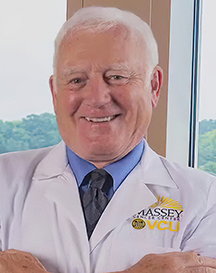Renewed interest in abandoned drugs for specific subsegments of certain healthcare populations could lead to new personalized treatments for cancer and other chronic diseases
A precision medicine approach to cancer drug development may result in triplatin, a cancer drug that was unsuccessful during clinical trials, becoming an effective treatment for breast cancer in specific cancer patients.
While triplatin was not shown to be effective for treating all breast cancers back when it was initially developed three decades ago, new research indicates it could be highly effective on a subsegment of aggressive breast cancers.
This new research highlights the potential precision medicine offers for using shelved medicines in more personalized applications.
Applying Certain Drug Therapies to Specific Patients’ Genetics

Triplatin was patented in the mid 1990s and underwent human clinical trials for the treatment of breast cancer. While initially thought to be a promising treatment candidate, the drug was ultimately found to only be efficacious in a low enough number of patients that it failed to earn regulatory approval.
Now, research conducted by scientists at the Virginia Commonwealth University (VCU) Massey Cancer Center has resurrected the potential use of this shelved cancer medication using a precision medicine approach.
Precision medicine uses therapies that are personalized to unique genetic features of each patient, often offering treatment options to those who have specific genetic variations of a disease.
The Massey Cancer Center researchers published their findings in Molecular Cancer Therapeutics, titled, “Exploitation of Sulfated Glycosaminoglycan Status for Precision Medicine of Triplatin in Triple-Negative Breast Cancer.”
They found triplatin to be effective in treating triple negative breast cancer in about 40% of cases. More important, the researchers could identify what distinguished the 40% of cancers for which triplatin worked from the 60% of cancers where it was less effective.
Triplatin, according to the new research, was very effective in targeting triple negative breast cancer tumors that were rich in a sugar called sulfated glycosaminoglycan (sGAG). A similar, but FDA-approved drug called carboplatin, is effective in treating triple negative breast cancers, but specifically targets tumors with low sGAG levels. This means that triplatin could serve as an ideal alternative to carboplatin depending on patients’ sGAG levels, instead of using carboplatin for all patients with triple negative breast cancer.
Triplatin Receives Renewed Attention as a Precision Medicine Treatment
Triplatin underwent phase II clinical trials in the 2000s as a potential treatment option for ovarian, lung, and pancreatic cancer. The drug failed to meet the level of efficacy that was needed to earn FDA approval. While several study participates achieved lasting remission, the number of patients that received benefit was too small for the drug to be regarded as an effective treatment for everyone.
Triplatin was ultimately abandoned until 2017, when the potential of this drug came to the attention of Jennifer Koblinski, PhD, assistant professor of pathology at the VCU School of Medicine and director of the Cancer Mouse Models Core (CMMC) at VCU Massey Cancer Center. Koblinski is a co-senior author of the study referenced in Molecular Cancer Therapeutics.
“Most clinical trial participants are going to be at a later stage of cancer,” Koblinski noted. “I said ‘why don’t we try it on a model that looks like a patient with advanced disease?’”
Koblinski partnered with Nicholas Farrell, PhD, professor of chemistry at VCU, to perform the VCU research that elucidated the factors helping triplatin to be successful in a subsegment of cancer patients. The precision medicine-based research will enable triplatin to move forward once again into human trials, but this time with the understanding of which cancer patients the medication will most likely help.
As precision medicine research advances, shelved drugs such as triplatin that were highly effective, but only in a small segment of patients, may be increasingly revisited. The improved understanding of why only some people respond well to experimental drugs can allow these drugs to be retrialed with a focus on a specific subsegment of patients instead of a more general population that may not respond as well to the medication.
“Phase II drugs don’t go away,” Farrell told VCU News. “They tend to be recycled. People find new data and new ideas.”
Healthcare leaders should be aware that precision medicine advances are not only coming from newly discovered medications and treatments, but also from revisiting old treatment options. As abandoned drugs are discovered to have utility in subsegments of populations they were originally intended for, hospitals and clinicians may gain improved personalized treatment options targeted for specific patients leading to improved outcomes.
—Caleb Williams
Related Information:
With Personalized Medicine, a Shelved Cancer Drug Could Get Another Shot
